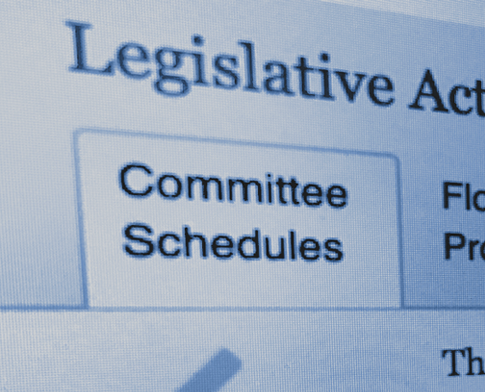The Sorry State of Tax Reform: The Glass Half-Empty
There has been a flurry of activity in the last few weeks since Finance Chairman Baucus and Ranking Member Hatch issued their Dear Colleague (attached) to the other 98 senators asking for input on a “blank slate” tax reform project. Notwithstanding next week’s installment of the “Max and Dave” road show in Philadelphia at which Baucus and Ways and Means Chairman Camp will again pitch a complete tax code overhaul, the results of their effort thus far appear to be a stark reminder of how far apart the two parties are in their approach to tax reform.
REVENUE CONUNDRUM:
There is no agreement, even between Baucus and Camp, on whether tax reform is an exercise to raise revenue and lower the budget deficit or whether it should be revenue neutral. While there is agreement that US corporate rates – the highest in the world – must be lowered, there is not agreement on where they should end up; Camp and the House Republicans are insisting on 25%, with Baucus and Obama willing to go to perhaps 28%. On individual rates, the disagreement is even more stark – as stated in their budget, passed earlier this year (albeit without Baucus’ support…for a number of reasons), Senate Democrats want to raise roughly $960 billion in tax increases while all Republicans agree that tax reform should be revenue neutral as a stand-alone measure and are unwilling to give Democrats any increases in revenue.
Senate leaders on the subject this week:
Senator Charles Schumer (D-N.Y.): The $975 billion figure, Schumer said, “would be a good target to aim for as part of tax reform. To just have a hundred million or so, that’s not going to cut it.”
Democratic Leader Harry Reid: Reid suggested that senators not on the tax-writing committee should stand down on the revenue question, and stressed with Sen. Schumer that raising nearly $1 trillion in revenue should be the starting point for any tax reform negotiations, saying “Under the total understanding that it can’t be revenue-neutral. It can’t be even close to revenue-neutral. There has to be significant new revenues.”
Regarding the tax reform process and the blank slate, Reid told reporters “I’m not going to be involved in this. I’m not on the committee. I’m not going to do it. I’m not even going to consider it.” On Thursday, he added, “Frankly, I haven’t read the (Dear Colleague) letter. Don’t intend to.”
Republican Leader Mitch McConnell: “I’m in favor of doing tax reform but I think tax reform ought to be revenue-neutral, as it was back during the Reagan years.” On NBC’s “Meet the Press” on Sunday he said “We’ve resolved this issue. Look, we don’t have this problem because we tax too little. We have it because we spend way, way too much.”
The Senate Republican Gang of Eight [“the Diners’ Club”], which has been negotiating with the White House since winter over a “grand bargain”, has indicated that more revenues could be on the table as part of a larger agreement covering entitlements, tax reform, the debt ceiling, and overall spending levels. However, even though the White House has offered some small changes in the past (e.g. “chained CPI”), entitlement reforms have been anathema to Leader Reid and the left. As a result, the prospects for a grand bargain remain very dim, leaving tax writers in the two houses far apart on the base revenue question.
SENATE REPUBLICAN LETTER TO BAUCUS/HATCH:
In response to the Baucus/Hatch Dear Colleague, on Thursday, July 25, 14 Republican senators, including McConnell and all of the Finance members, wrote that they view tax reform as an exercise to increase US competitiveness by lowering corporate and individual tax rates that must necessarily be a revenue-neutral process. They noted that as a measure of GDP, US taxes are already at the upper edge of the historical range and should not be pushed higher. A copy of that letter is also attached.
A SENATE FINANCE BILL?
Given that there is no revenue or rate target yet agreed-to (even by Baucus and Camp), how can the Finance Committee move to a markup – or even a first draft of a Chairman’s mark – as Baucus vowed on the Senate floor this week? One possibility is that Baucus will have to develop a bill based in part, one imagines, on the input from the blank slate project. The choices for Baucus are stark: either it’s revenue neutral and wins Republican support in committee – and loses all Democratic support – or raises something between $975 billion (per Reid and Schumer) and $600 billion (the number some say Baucus wants) – and loses all Republican support. A revenue neutral version supported by Baucus and the committee Republicans would still fail on a 12 – 12 vote, and even if an additional Democrat peeled off to support the chairman, there is little likelihood that Leader Reid would bring such a bill to the Senate floor.
Some have suggested that Baucus could offer up a package deferring decisions on rates and revenue-levels to the end of the process, and tackling the hard work specific provisions up front and in a bipartisan fashion. However, much of the ground work has already been done through the more-than 30 hearings held, 11 option papers released, and years of staff work. It would also be conceptually difficult to put together a reform package that defers key decisions on tax rates (eg., what level of taxes will be levied) while simultaneously repealing or reducing tax expenditures and perhaps even limiting “ordinary and necessary” business expenses. While many corporate taxpayers have agreed to give up tax expenditures to get to a 25% rate, they are not going to be willing to give up those benefits without knowing what they will get in exchange.
RAISING REVENUES THROUGH ECONOMIC GROWTH – THE DYNAMIC SCORING QUESTION:
House Republicans and many in the Senate believe that tax reform will boost US competitiveness internationally and also boost economic activity domestically, boosting economic growth and consequently leading to additional tax revenue. The Joint Committee on Taxation, which creates revenue-estimating models to evaluate tax proposals, does acknowledge some revenue growth from behavioral changes as part of its revenue scoring – “dynamic” versus “static” – with macroeconomic feedback effects. Accounting for these growth effects is key to the House Republican tax reform effort, but to what extent the revenues make up for losses from cutting tax rates is uncertain at this point. Democrats want to raise revenues the old-fashioned way – by raising taxes on upper income individuals and paring a host of tax expenditures for bogey-men items like corporate jets, oil and gas breaks, and Wall Street provisions like “carried interest.”
INDIVIDUAL TAX RATES ARE ALSO A DEAL-BREAKER:
The top individual tax rate was raised from 35% to 39.6% in the year-end “fiscal cliff” deal (American Taxpayer Relief Act of 2012); in addition, the 3.8% add-on tax from the Affordable Care Act kicked in on January 1, bringing the top rate paid by taxpayers to 43.4% (and the capital gains and dividend rate from 20% to 23.8%). The ATRA tax hike was over $600 billion. This increase in individual taxes also impacts US business, given that more than half of all business income is earned by pass-through entities (sole proprietors, partnerships, and S Corporations) outside the corporate tax system, where income and deductions flow through to the taxpayer directly. Democrats are loathe to reduce individual rates after having won the battle over repealing a portion of the former-Bush tax cuts (on earnings above $450,000), but Republicans argue that the higher taxes affect small businesses – the great job creators of the US economy. Real economic recovery, which to date has been anemic at best, would therefore see a significant boost if rates were reduced to 25% for all taxpayers. Many of the tax expenditures that would have to be cut to lower the rate to 25% are viewed as sacrosanct by many individuals (e.g. mortgage interest, the exclusion for employer-provided health insurance, charitable contributions, and the state and local tax deductions), which will make the Ways and Means Committee’s task very challenging and interesting to watch.
NB: While the corporate rate is easier to cut to reduce the rate below 30%, it is still difficult to get it to 25% without making the corporate tax a flat tax (reducing the size of the 10% bracket) and cutting into normal business deductions like interest or depreciation.
A SCENARIO (HOWVER UNLIKELY…):
If the Senate Finance Committee can’t get to a majority for whatever reason, there is still the chance that Camp might be able to get a revenue neutral bill out of Ways and Means and through the House (despite recent reports that some Ways and Means Democrats are considering bucking the party to support a revenue-neutral tax reform package, it is a near certainty that House Democratic leadership would oppose such a bill and that it would only attract Republican votes). Baucus and Hatch might then agree to go back to Senate Finance with a Chairman’s mark that starts from a revenue-neutral starting position. They could then proceed to full markup where: the Democratic majority on the Committee agrees to a bill that raises revenue, which Republicans oppose, and the bill goes to the Senate floor; OR, Baucus and some Finance Democrats agree to a revenue neutral, bipartisan bill in committee, which goes to floor and Democrats offer tax hike after tax hike to raise the revenue they insist upon.
DEBT CEILING:
The next action-driving event will be the expiration of the debt ceiling sometime in October or November. How a debt ceiling passes the House is entirely unclear at this point, with the Republican conference split between those who want to tie tax reform to it and those who want to add Obamacare repeal, plus entitlement reform, plus further discretionary spending cuts. Democrats of course insist on a “clean extension” of the debt limit.
The final question asked by inquiring minds: When do extenders come into play?
Answer: Not until the tax reform scenarios are played out, and probably not until 2014, after this year’s tax extenders have all expired.
CONCLUSION:
There is no easy path forward in either chamber for tax reform, but the two lame-duck tax writing committee chairmen are continuing to charge ahead on their single-minded effort. Their ingenuity and creativity will be sorely tested as the Fall approaches if they are to turn their vows to act on tax-reform into tangible action.
HOUSE.GOV
The Week Ahead
For the main events of the next week and more, go straight to the key events on the house.gov website.
SENATE.GOV
The Week Ahead
For the main events of the next week and more, go straight to the key events on the senate.gov website.


